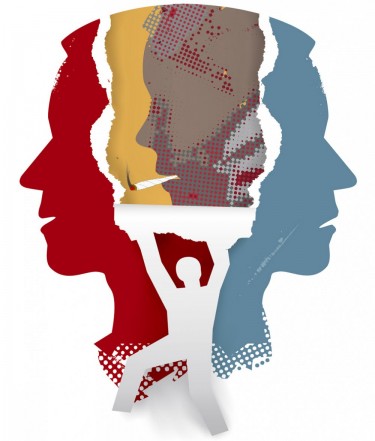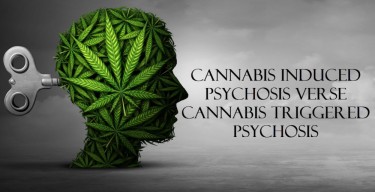
Does exposure to cannabis as a young person lead to psychosis later as an adult?
While cannabis legalization is rampant in the United States, people with anti-marijuana views have started spreading various types of propaganda about cannabis use among young adults.
These people painted scenes similar to the popular 1936 anti-marijuana film Reefer Madness. The film, directed by J. Cashier, was one of the means to instill fear in teenagers when the cannabis ban was hot.
Another example is mainstream advertising from 1980, in which the narrator suggested that a cannabis consumer’s brain is less like a broken egg being fried. All of this has been used to validate the public against cannabis use.
Now residents are being told that cannabis use will lead to mental disorders in young adults in their later years. Unlike the 1900s when hypes like this were swallowed up by the public, things are different now. People really want to know what experts think about cannabis use among young adults. Is the anti-marijuana camp trying to arouse public fear or is it telling the truth?
Adolescents, cannabis and later psychological problems
Over the years, one of the strategies used by anti-weed politicians or advocates has been to make unproven claims about children and their health in the future. Mental and health experts said these claims were a little exaggerated. Sure, there was some truth to it, but the truth was too twisted. A recent study was conducted to gauge the veracity of these claims.
The study
This investigation included a number of twins; one of them was a heavy marijuana user and the other was not. The research team wanted to investigate the effects of cannabis use in young adults and the possibility that it may be a major cause of psychosis in adults in their later years.
The team’s decision to use twins instead of siblings or unrelated individuals in this study is because studies with twins provide detailed information that can be used by the global cannabis community.
More details on the study
At the end of the review, the researchers stated that the responses observed from the study did not support the hypothesis that young people who use cannabis are at greater risk of developing psychosis or schizophrenia in adults than their partners who do not use cannabis .
The researchers added that adult psychosis in individuals who smoked at a young age can be attributed to their susceptibility factors. Like her medical history and genetics.
Associating cannabis use in young adults with an increased risk of developing mental disorders in adults to petrify young people is a poor tactic that should not be encouraged.
Conclusion of the study
The researchers wrote that the observed results suggest that cannabis use in adolescents and psychosis in adults are due to family relationships rather than to a patient’s early exposure to cannabis use.
The results also imply that the risk of psychological harm to young people from the use of cannabis products may be exaggerated.
With this study it becomes clear that the focus of clinical and public health interventions should be shifted to something else that can have a better impact on society.
Young people who are prone to mental illness remain at risk
The above study results do not negate the fact that some individuals with a history of mental illness or family connections are at high risk of developing full-blown psychotic disorder.
Public health interventions can focus on educating young people to know their health history before using cannabis. A family history of psychosis combined with environmental factors will determine whether or not a young person will need prolonged treatment for psychosis.
A 2019 study showed that young people at risk have an 11 percent risk of developing schizophrenia after suffering from cannabis-induced psychosis.
A person at risk who uses cannabis will not have their life collapsed unless they consume the drug excessively. Families must inform their wards if there is a family history of serious mental disorders.
Limiting cannabis use among adolescents
Now that it has been established that adult psychosis cannot be linked to early exposure of young people to cannabis. More attention should be paid to taking adolescent consumption seriously.
The human brain continues to develop until young people are in their mid-20s. While cannabis use may not pose a risk in the future, the present is also important.
Excessive cannabis use in young people affects the parts of the brain responsible for problem solving and judgment. Smoking or consuming weed in any way leaves a young person of his current age vulnerable to psychotic thoughts.
In 2019 it was reported that a young person named Madison McIntosh experienced a psychotic episode after vaping a strong form of THC.
The 24-year-old was rushed to the hospital by his parents after walking around muttering gibberish for about 12 hours. Doctors diagnosed him with cannabis use disorder and some form of psychosis.
In an interview, McIntosh recalled feeling delusional and anxious while going through the manic episode.
The more young people abuse cannabis, the more people are admitted to emergency rooms because of psychotic symptoms. The government and cannabis advocates must preach safe and responsible ways to smoke cannabis, as well as the limits accepted for adolescents.
Dr. Itai Danivitch, Cedars Sinai director of behavioral neuroscience and psychiatry in Los Angeles, commented on the alarming rates of psychotics being observed in admitted patients. Itai said that when a person consumes cannabis products excessively, psychotic symptoms occur. The psychotic episodes last as long as they remain active in the bloodstream. As soon as it subsides, the psychosis stops.
Takeaways
Youth consumption is a matter that requires urgent attention. Public health strategies need to reflect other things that can lead to poor mental health in adulthood. This will help find the right balance. Rather than addressing this issue by preaching abstinence or upholding prohibitive laws, the situation is better handled by preaching the safe use of weed. After all, cannabis isn’t the only intoxicating substance that needs research. Other banned substances need to be studied to counterbalance possible psychosis in adulthood.
PSYCHOSIS HEADLINES AND WEED, READ MORE …

PSYCHOSIS RELATED TO SCHIZOPHRENIA GENE, NOT MARIJUANA USE!
OR..

CANNABIS INDUCED PSYCHOSIS VS. CANNABIS-TRIGGERED PSYCHOSIS?

Post a comment: